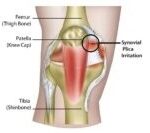Is your furry friend a nightly concert of snores? Dog snoring, while often endearing and normal, can sometimes signal underlying health issues. Understanding the reasons Why Do Dogs Snore is crucial for responsible pet ownership, helping you discern harmless noises from potential warning signs that warrant a visit to the veterinarian.
Understanding the Mechanics: What Happens When Your Dog Snores?
Dog snoring occurs when the soft tissues in their upper airways – specifically the nose, mouth, and throat – vibrate as they breathe during sleep. This vibration sound emerges when the airflow is somewhat restricted. Imagine a gentle flutter of a flag in a slight breeze versus a loud flap in strong winds; snoring is similar to the latter, where constricted airflow causes more pronounced tissue vibration and thus, louder sounds. This airway narrowing can be due to various factors, including inflammation, obstructions, congestion, or anatomical predispositions.
Unpacking the Reasons: Common Causes of Snoring in Dogs
Several factors can contribute to your dog’s nighttime symphony. Here’s a breakdown of the common culprits behind dog snoring:
-
Upper Respiratory Infections: Just like humans, dogs are susceptible to colds and upper respiratory infections. These infections cause nasal congestion, leading to swollen nasal passages and increased mucus production. This congestion obstructs the free flow of air, making snoring more likely. Think of it as trying to breathe through a stuffy nose – the constricted passage creates more sound.
-
Excess Weight and Obesity: Extra weight in dogs isn’t just around their belly; it can accumulate around the neck and throat as well. This excess fatty tissue can compress the airways, narrowing the passage and leading to snoring. Obesity is a significant health concern in dogs, and snoring can be one of its many symptoms.
-
Allergies: Environmental allergens like pollen, dust mites, and mold, or food allergies, can trigger inflammation in a dog’s nasal passages. This inflammation causes swelling, which restricts airflow and can result in snoring. Identifying and managing allergies is important for your dog’s overall comfort and breathing.
-
Sleep Position: Observe your dog’s sleeping posture. Does the snoring intensify when they sleep on their back? This position can cause the tongue to relax and fall back into the throat, partially blocking the airway and increasing the likelihood of snoring. Changing their position might sometimes alleviate the snoring.
-
Dental Abscesses and Infections: An abscessed tooth, caused by a bacterial infection, can lead to inflammation and swelling in the surrounding tissues of the mouth and nasal passages. This swelling can impinge on the airway and contribute to snoring. Dental health is crucial, and addressing dental infections can resolve related snoring.
-
Hypothyroidism: This condition, where the thyroid gland doesn’t produce enough thyroid hormone, can manifest in various symptoms, including snoring. Hypothyroidism can cause lethargy, weight gain, skin and coat issues, and in some cases, contribute to airway changes that lead to snoring. If snoring is accompanied by other signs of hypothyroidism, veterinary attention is necessary.
-
Breed Predisposition and Brachycephalic Breeds: Certain dog breeds, particularly brachycephalic breeds – those with short noses and flat faces like Bulldogs, Pugs, Boxers, and Shih Tzus – are naturally more prone to snoring. Their facial structure often leads to narrower airways and elongated soft palates, making them predisposed to breathing sounds like snoring.
-
Nasal Obstructions: Any physical obstruction in the nasal passages can impede airflow and cause snoring. This could range from benign growths (polyps) to more serious tumors, or even a foreign object lodged in the nose. Persistent or sudden onset snoring should prompt a veterinary check to rule out obstructions.
Addressing the Snores: What Can Be Done?
The approach to managing dog snoring depends heavily on the underlying cause.
-
Simple Lifestyle Adjustments: For positional snoring, gently nudging your dog to change positions might help. If overweight is a factor, a veterinarian-guided weight loss plan is essential. Gradual weight loss can significantly reduce snoring and improve overall health.
-
Managing Underlying Conditions: If an upper respiratory infection is the cause, the snoring will likely subside as the infection clears up. For allergies, identifying and minimizing allergen exposure, along with veterinarian-prescribed allergy medications, can be beneficial. Dental issues require veterinary dental care, including addressing abscesses and infections. Hypothyroidism is managed with prescription thyroid hormone replacement medication, which can alleviate snoring associated with the condition.
-
Environmental Modifications for Allergies: Creating a hypoallergenic environment can help manage allergy-related snoring. Regular cleaning, using air purifiers, washing bedding frequently, and wiping your dog down after outdoor excursions can reduce allergen load. Humidifiers can also help keep nasal passages moist.
-
Veterinary Intervention: If snoring is new, sudden, or accompanied by other concerning symptoms like labored breathing, coughing, or changes in behavior, a veterinary visit is crucial. For brachycephalic breeds, while some snoring is expected, excessive snoring or breathing difficulties should be evaluated. In some cases, surgery might be recommended to improve airflow in severe cases of airway obstruction.
When to Worry: Recognizing Problematic Snoring
While occasional, mild snoring might be normal, pay attention to changes in your dog’s snoring habits. Be concerned if:
- Sudden onset of snoring: If your dog suddenly starts snoring when they never did before.
- Loud or disruptive snoring: Snoring that is excessively loud and seems to disrupt their sleep or daily life.
- Snoring accompanied by other symptoms: Watch for signs like labored breathing, gasping, coughing, wheezing, nasal discharge, lethargy, changes in appetite, or any other signs of illness.
Concerned about your dog’s snoring? It’s always best to err on the side of caution. Contact your veterinarian to discuss your concerns and schedule a check-up. Early diagnosis and intervention can ensure your dog breathes easily and enjoys restful sleep.
Sources:
PetMD: Does Your Dog Have a Snoring Problem?, 3/24/17
College of Veterinary Medicine, University of Illinois at Urbana-Champaign: Why Does My Pet Snore?
Canine Journal: Dog Snoring: Is It Normal or a Cause for Concern?, 11/5/20
